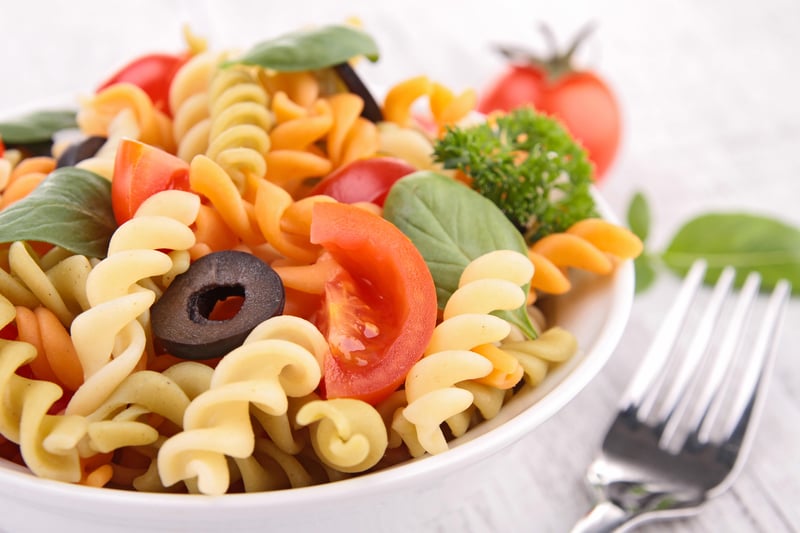Get Healthy!

- Denise Mann
- Posted August 11, 2022
Vegetarian Women at Higher Odds for Hip Fracture
Record numbers of people are turning to plant-based diets to take advantage of the many health benefits they offer, but this may come at the expense of their bones, a new study suggests.
Exactly what did researchers find? Middle-aged women who never eat meat may be more likely to break a hip than women who regularly consume meat and/or fish.
More study is needed to understand why vegetarians seem to be at greater risk for hip fractures, but researchers suspect that low body mass index (BMI) and nutrient shortfalls play a role.
"Whilst a lower BMI is beneficial for many health conditions, being underweight can lead to insufficient fat mass, and poor bone and muscle health, which can each increase hip fracture risk,"said study author James Webster. He is a doctoral researcher from the School of Food Science and Nutrition at the University of Leeds in England. BMI is an estimate of body fat based on weight and height. The average BMI of vegetarians in the study was slightly lower than that of meat eaters.
"People with less fat mass have less cushioning during falls, and falls account for 90% of hip fractures,"he explained.
Meat and fish are also excellent sources of several nutrients for bone health, including protein, vitamin B12 and vitamin D.
"It is possible to get most of these nutrients from plant sources, eggs and dairy products, [but] previous studies have found lower intakes of these nutrients in vegetarians,"Webster said. In the study, vegetarians had lower intakes of protein and vitamin B12 than folks who ate meat five or more times each week.
In the study, researchers looked at rates of hip fractures in over 26,000 women aged 35 to 69 who ate meat no more than four times a week (occasional meat eaters); pescatarians who ate fish but not meat; vegetarians; and regular meat-eaters who consumed meat at least five times a week. The women filled out food frequency questionnaires, and these were compared against hospital records to see who suffered a hip fracture. During about 20 years of follow-up, there were 822 hip fractures.
Vegetarians were the only group who had an elevated risk of hip fracture once researchers controlled for other factors known to increase this risk, including smoking status and physical activity level.
The findings were published online Aug. 11 in the journal BMC Medicine.
There are steps that vegetarians can take to better protect their bones while enjoying the heart and other health benefits of a plant-based diet, Webster said. This starts with maintaining a healthy weight, which increases the likelihood of healthy bones and muscles, and helps to reduce hip fracture risk.
Eating lots of fruits and vegetables, nuts, legumes, beans and whole grains provides most of the nutrients needed for bone health and fracture prevention, he added.
Consider fortified foods and supplements, too, he suggested. "Eating foods fortified with key nutrients or taking nutritional supplements can also help avoid nutritional deficiencies, particularly for vitamin B12 and omega-3 fatty acids, which are difficult to get from plant foods directly,"Webster said.
Avoiding smoking and excessive alcohol consumption, while getting regular exercise, can also help keep bones strong. "Resistance exercise, where you lift or pull against resistance, such as weight training, may be particularly beneficial through increasing bone and muscle strength,"Webster said.
New Austrian research published last week backs up this advice: Vegans who lift weights or do strength training have stronger bones than vegans who only do other forms of exercise, such as biking or swimming.
Dietitians not involved with the new study pointed out that building strong and healthy bones involves more than just getting enough calcium.
Magnesium, potassium, boron, zinc, copper, manganese, vitamin D and vitamin K2 are also important, said Robin Foroutan, a New York dietitian.
"Protein is critically important to building a strong and flexible bone matrix,"she said. "Vegetarian sources of protein may be more difficult to digest and absorb for some people, which makes the protein less bioavailable."
Focusing on high-quality sources of vegetarian protein, as well as dark leafy greens, nuts, seeds and other high-mineral plant foods, can support healthy bones, Foroutan said.
Lona Sandon, program director of clinical nutrition in the School of Health Professions at University of Texas Southwestern Medical Center in Dallas, agreed.
Her advice to vegetarians? "Aim for plenty of quality protein from eggs and dairy sources if they are willing to include these in their diet,"Sandon said. If not, up your bean, legume, nut, nut butter and seed intake to assure adequate amounts of all the bone-building nutrients beyond calcium.
Marion Nestle, a retired professor of nutrition, food studies, and public health at New York University, cautioned that more research is needed before drawing any conclusions about fracture risk in vegetarians.
"Vegetarians who don't eat red meat but eat other animal products should be at no higher risk for bone fractures,"she said, but underweight vegans, however, could be missing essential nutrients.
More information
Learn more about how to eat a healthy vegetarian diet at the Academy of Nutrition and Dietetics.
SOURCES: James Webster, doctoral researcher, School of Food Science and Nutrition, University of Leeds, England; Robin Foroutan, MS, RDN, dietitian, New York; Lona Sandon, PhD, RDN, LD, program director, clinical nutrition, School of Health Professions, University of Texas Southwestern Medical Center, Dallas; Marion Nestle, PhD, MPH, professor emerita, nutrition, food studies and public health, New York University, New York City; BMC Medicine, Aug. 11, 2022, online







